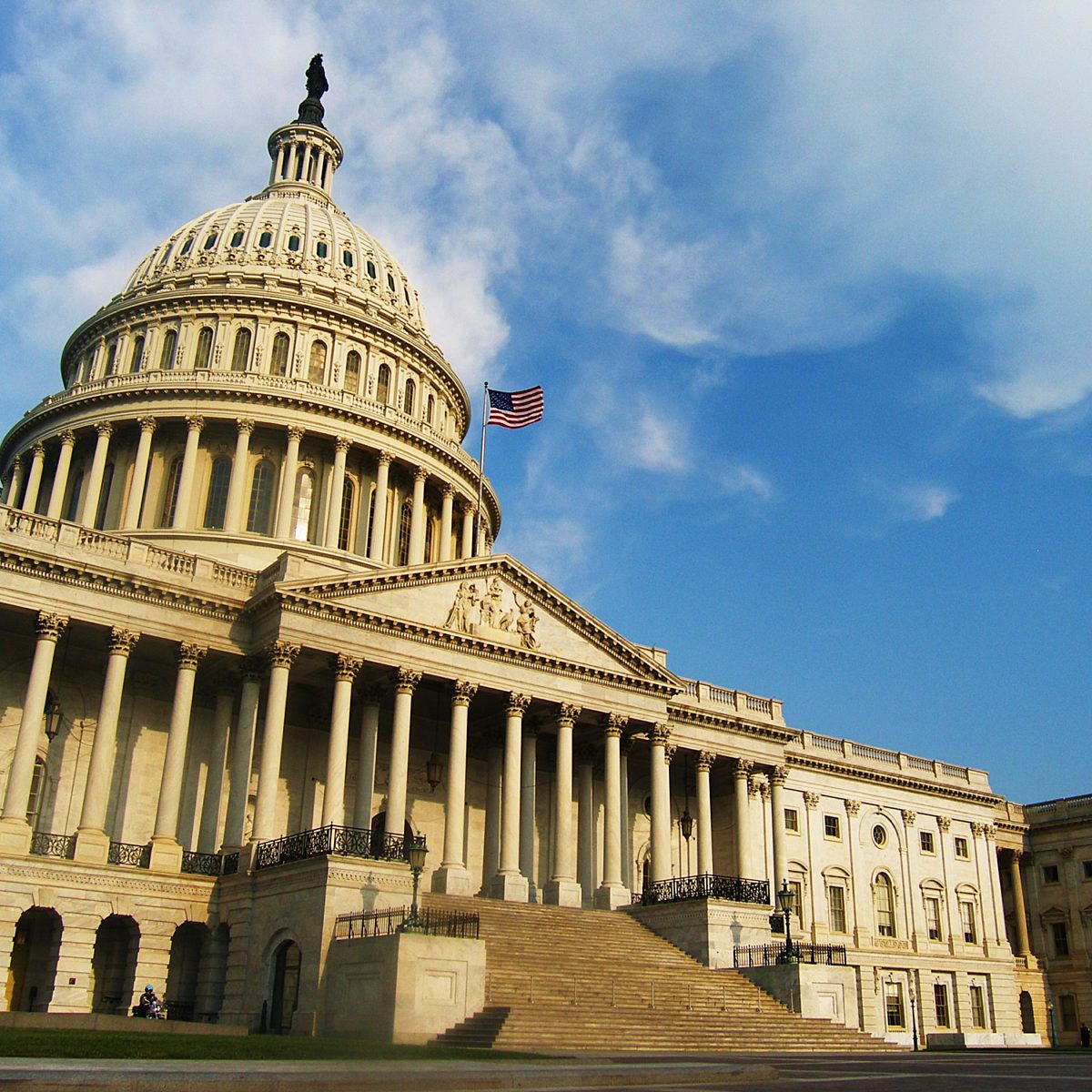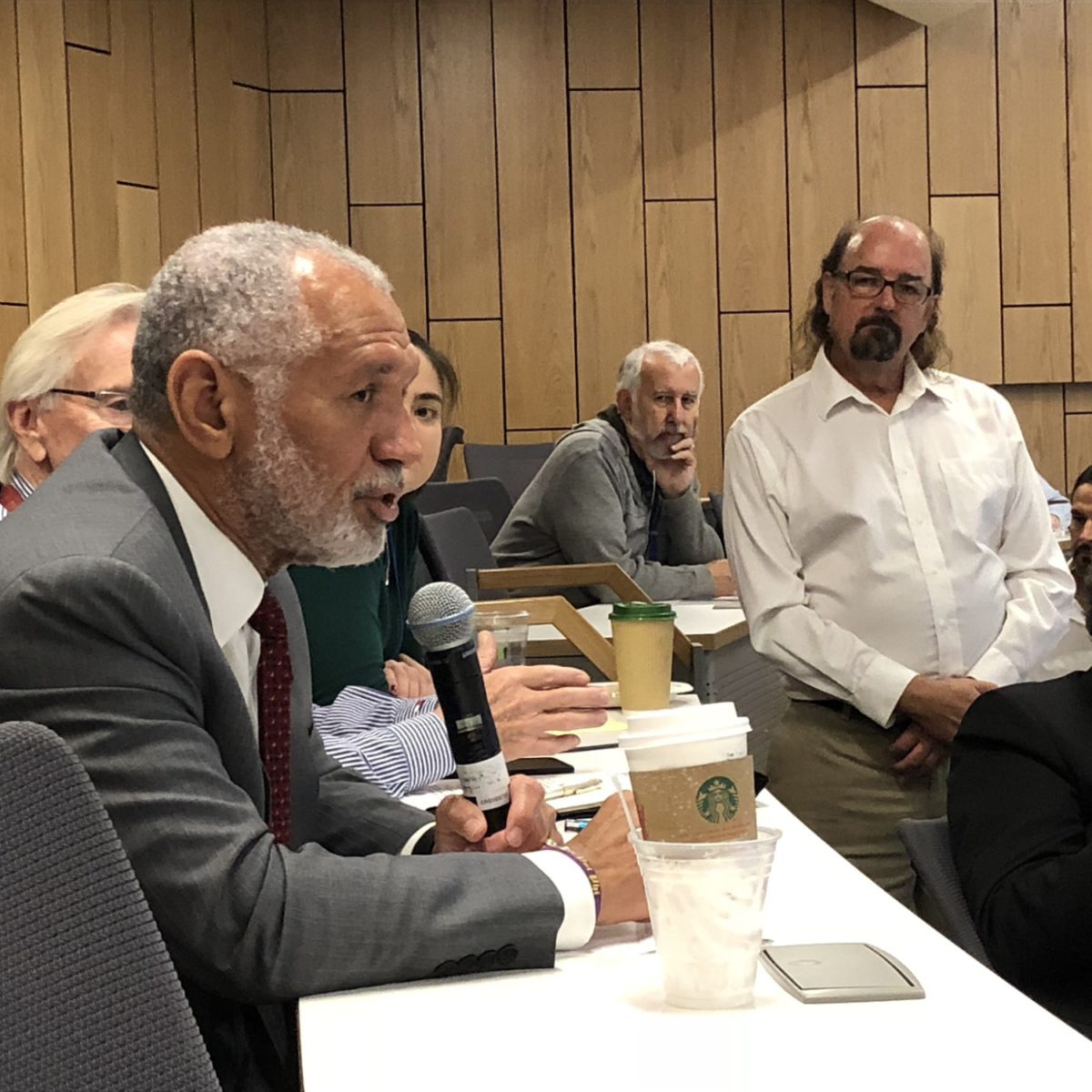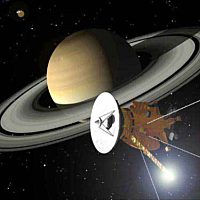Since 2002, Planetary Radio has visited with a scientist, engineer, project manager, advocate, or writer who provides a unique perspective on the quest for knowledge about our Solar System and beyond. The full show archive is available for free.
Search Planetary Radio
Casey Dreier, the chief of space policy at The Planetary Society, analyzes what the incoming Trump administration could mean for NASA’s funding, human spaceflight, and its Science Mission Directorate.
October 1st kicked off federal fiscal year 2020—a day that should also have kicked off a new budget for NASA. But Congress has not funded the space agency yet, instead passing a temporary stopgap measure to keep the government open until November 21st. Brendan Curry, The Planetary Society's Chief of D.C. Operations, joins the show to discuss the latest political developments in Washington, good news for planetary defense, and how the funding delay could spell trouble for the space agency's 2024 lunar goal.
As NASA struggles to return humans to the Moon by 2024, it's worth asking: why did it stop in the first place? Space historian John Logsdon joins the show to discuss the politics behind the decision to abandon the Moon in 1972. Casey and Mat also discuss the proposal to offer a $2 billion prize for sending humans back to the Moon and establishing a base there, and why that's not good public policy.
Did the public support Project Apollo? Dr. Emily Margolis joins the show to explore the domestic politics and cultural impact of the space age throughout the 1960s. Despite the success of the lunar landings, there was more opposition to Apollo than we generally remember.
Space historian Dr. Roger Launius joins the show to explain why Apollo happened the way it did, how a moonshot briefly became a solution to a national security problem, and why it is unlikely to happen again.
Can NASA return astronauts to the Moon by 2024? Vice President Mike Pence shocked the space community by announcing this ambitious new goal just weeks after the Trump Administration proposed a half-billion dollar cut to the space agency.
China's space program notched an impressive "first" last month when its Chang'e 4 spacecraft landed on the far side of the Moon. The U.S. space program, in contrast, was in the midst of an extended shutdown. Some observers expect China's growing space capability and lunar ambitions to trigger a new space race. Not Dr. Roger Handberg, Professor of Political Science at the University of Central Florida. He discusses how the current geopolitical situation differs from the Cold War standoff between two superpowers, and how we shouldn't expect dollars to flow back to the U.S. space program as a consequence of China's space successes. Cooperation, or even friendly competition, is a much more likely outcome than a new space race.
In a government shutdown seemingly without end, we bring you two stories from individuals directly impacted by the crisis. NASA scientist and union representative Lee Stone discusses the missed paychecks, loss of science, and lasting negative consequences to the public sector scientific workforce.
He led NASA for eight years, but not till he had flown on four Space Shuttle missions and enjoyed a long military career. Charlie Bolden talks with Mat about his time at the space agency and where we’re headed on the final frontier.
Canada was the third country in history to launch a satellite into space, but now lags in its space ambitions, capability, and spending. What happened?
The counting continues as we publish this month’s special episode, with a handful of seats in the US Senate and House still up for grabs. But with the Democratic takeover of the House assured, and several longtime space advocates turned out, change is certainly coming.
Happy 60th, NASA. In celebration of the space agency’s birthday, we do the audio equivalent of pulling out NASA’s baby book and explore its origin story.
We talk with planetary scientist and Lunar and Planetary Institute Director Louise Prockter, who co-led creation of a new report evaluating the performance of NASA's planetary science division.
President Trump recently ordered the creation of Space Force—but what does that mean? What are the implications for militarization of space? National security expert Dr. Brian Weeden joins the show to explain the announcement.
Freeman Dyson wasn’t the only space star at the ISDC. Mat talks with former astronaut and NOAA Administrator Kathryn Sullivan, leaders of the Cassini mission, innovative students and an expert on dental care in space.
Lori Garver, former Deputy Administrator of NASA, talks with Casey about what the Deputy and Administrator jobs are like day-to-day, how decisions actually get made at the top, and why the current lack of confirmed leadership hurts the space agency.
Society members from 21 states descended on the U.S. capitol for a
The multi-billion dollar, multi-decade Cassini mission is about to end. A new report tries to answer an important question: are flagship science missions like Cassini worth the effort and expense? And how can NASA maximize the value of these endeavours? Dr. Ralph McNutt, co-chair of the National Academies study, reviews the report’s recommendations.
The SPE team reviews the outlook for human spaceflight, planetary science, Earth observation and much more under the upcoming Trump administration.
In the premiere of this new monthly series we briefly examine the latest move by the House of Representatives in the game of NASA's budget and then discuss what Lockheed Martin's new


 Explore Worlds
Explore Worlds Find Life
Find Life Defend Earth
Defend Earth

















